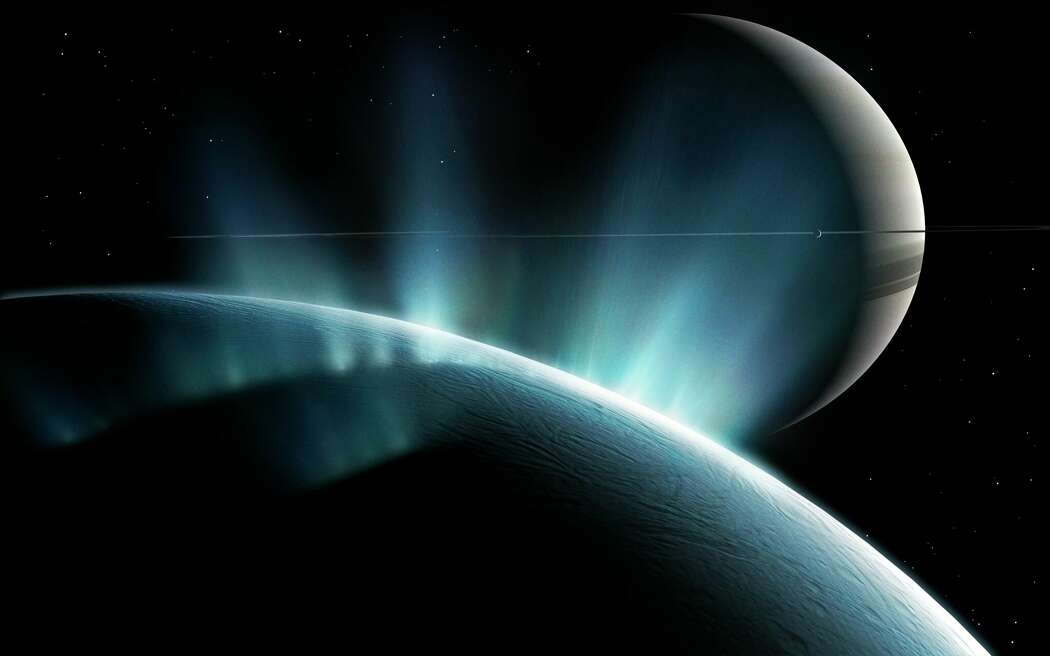[ Skywatchers ] [ Main Menu ]
47497

From: ryan, [DNS_Address]
Subject: 'A stunning discovery': Saturn's moon Enceladus holds a key ingredient
URL: https://www.sfgate.com/bayarea/article/phosphorus-discovery-saturn-moon-enceladus-18155050.php
|
'A stunning discovery': Saturn's moon Enceladus holds a key ingredient for life Ariana Bindman, SFGATE June 15, 2023 An artist's interpretation of jets of water venting from the surface of Saturn's moon Enceladus. An artist's interpretation of jets of water venting from the surface of Saturn's moon Enceladus. MARK GARLICK/SPL/Getty Images/Science Photo Library A crucial building block for life has been found in one of the galaxy’s most unlikely places. According to a recent study published on June 14 in the journal Nature, Enceladus — an icy moon orbiting Saturn — might contain an ocean full of phosphorus, an element that has never been detected on other planets before. The international team of researchers who spearheaded the paper used Cassini’s Cosmic Dust Analyzer, or CDA, to study Enceladus’ ice particles that drifted into Saturn’s luminous “E ring.” At first, the team’s geochemical modeling indicated that phosphate might be scarce, but more recent tests revealed that phosphate concentrations could be “at least 100-fold higher in the moon’s plume-forming ocean waters than in Earth’s oceans,” the study read. According to NASA, phosphorus is essential to our DNA and is often found in bones, cell membranes and plankton. The presence of this element also indicates that Enceladus might not be the only icy world harboring the potential to create life. “High phosphate concentrations are a result of interactions between carbonate-rich liquid water and rocky minerals on Enceladus’ ocean floor and may also occur on a number of other ocean worlds,” Southwest Research Institute planetary scientist and geochemist Christopher Glein told NASA. “This key ingredient could be abundant enough to potentially support life in Enceladus’ ocean; this is a stunning discovery for astrobiology.” For years, scientists have been mystified by this moon. In 2015, CDA researchers discovered that Enceladus produced a plume of water and spewed silica-rich rocks, suggesting that they came from a region with “hydrothermal activity.” Regardless, scientists are still trying to understand what, exactly, this new discovery means. “Having the ingredients is necessary, but they may not be sufficient for an extraterrestrial environment to host life,” Glein continued. “Whether life could have originated in Enceladus’ ocean remains an open question.” |
Responses:
[47500]
47500
From: georg, [DNS_Address]
Subject: Re: 'A stunning discovery': Saturn's moon Enceladus holds a key...
|
it would not have surprised Immanuel Velikovsky on bit in his last book (published posthumously) he reports that the water of Saturn is of the same chemical composition as that of the water in our oceans from this Velikovsky concluded that a supernova of Saturn caused the deluge of Noah, kicked the Earth out of its orbit around Saturn and put us in a new orbit around Sol he also reports that the archaic Arcadians lived on Earth before there was a moon in the skies |
Responses:
None
[ Skywatchers ] [ Main Menu ]